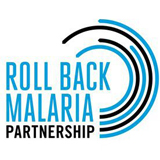
Prevention of malaria in pregnancy is a key component of malaria control and an important contributor to maternal and child health. National policies and effective delivery of available preventive measures in the antenatal setting will directly contribute to achieving the Millennium Development Goals (MDGs).a Interventions that substantially reduce adverse outcomes of malaria in pregnancy have been available for more than two decades yet the coverage of such interventions is general ppor.
- Malaria in pregnancy must be a priority compotent of antenatal care.
Malaria in pregnancy interventions save the lives of pregnant women and their newborns (1–28 days of age),b and should be an integral component of all reproductive, maternal, newborn and child health programmes. Malaria in pregnancy is a significant contributor to maternal and neonatal mortality. It is a major cause of anaemia in pregnant women, which contributes to maternal death at delivery due to haemorrhage, and causes stillbirths, preterm birth, and low birth weight increasing the risk of neonatal death. In Africa, 10 000 women and between 75 000 and 200 000 infants (children under the age of 12 months) are estimated to die annually as a result of malaria infection during pregnancy, and approximately 11% (100 000) of neonatal deaths are due to low birth weight resulting from Plasmodium falciparum infections in pregnancy.
These outcomes are entirely preventable, and optimizing the delivery of malaria in pregnancy interventions will lead to direct improvements in maternal, newborn and infant health.
- Malaria in pregnancy interventions can substantially improve maternal, newborn and infant health.
Under routine programme conditions, intermittent preventive treatment during pregnancy (IPTp) or insecticide-treated mosquito net (ITN)c use in first and second pregnancies in 25 African countries was significantly associated with an 18% decrease in the risk of neonatal mortality and 21% decrease in low birth weight. According to the Lives Saved Tool (LiST), about 94 000 deaths (uncertainty interval: 19 000–251 000) among newborns were averted between 2009 and 2012 thanks to the scale-up of prevention of malaria in pregnancy interventions. Had an 80% coverage of prevention of malaria in pregnancy interventions been achieved over these three years in these same countries, about 300 000 neonatal deaths could have been averted. Countries with high coverage and use of malaria control interventions saw child mortality rates fall by about 20%. Continued focus on scaling up coverage and access to these interventions will substantially increase the magnitude of these health benefits.